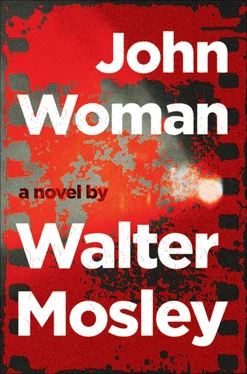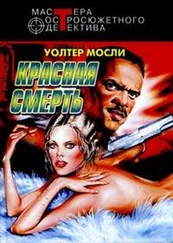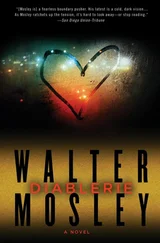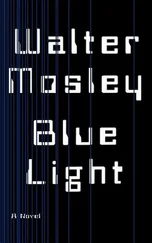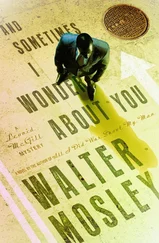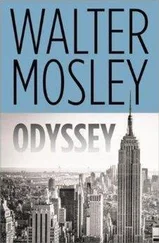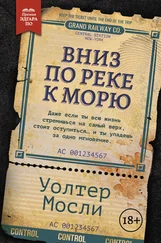“It’s against the law to destroy evidence of a crime, Professor.”
“I am aware of no crime, Officer” John said. “I just pulled trash out of a receptacle then postulated on the idea of history.”
“The possession of heroin is a crime.”
“I don’t know that I handled heroin. It could have been powdered sugar. Maybe that’s why it was thrown away.”
“Why didn’t you want to let us in?” Hernandez asked, now unsure of his evidence.
“I’ve never had the police come to my door,” he lied.
“Do you have some reason to be afraid of the police?”
There it was, his chance to confess. Yes, officer, I murdered a man years ago and the police are after me. That’s why I didn’t want to let you in.
“No, Officer, of course not. I’m a university professor but when authority comes calling the everyday citizen has learned to fear the worst.”
“Do you have anything to fear, Professor?”
John smiled, then grinned. “Men with guns sitting at my table.”
Mulligan had been quiet while Hernandez asked again and again about the disposition of the trunk. Where did he get it? Where did he dispose of it? Who else did he work with? Who told him about the trash can? Before departing Officer Hernandez said they might return after reexamining the video recording of the lecture.
“You’re pretty excited tonight,” Carlinda said as they lay side by side looking up at the ceiling.
“Your boyfriend came to my office hours the other day.”
“He did?” She sat up.
“Uh-huh. He thought we were having an affair because of the way you looked at me at the Trash Can Lecture. He also told me that he’s waited outside the gate here to see if you came by.”
“What did you say?”
“That there was no love, either physical or emotional, between us.”
“You lied to him?”
“Do you love me?”
“Um, no.”
“Have you had sex with me because you love me?”
“I guess not.”
“Then I didn’t lie. I merely interpreted our relationship in such a way as to keep Arnold out of jail for either assault or murder... or worse.”
“What worse?”
“It occurred to me that I might have hurt him.”
“Do you think he could have followed me here tonight?”
“Did you jump the fence?”
“Yes.”
“Then no. Arnold strikes me as a front door type of guy.”
Carlinda laughed, showing her teeth. “You’re funny.”
“If you don’t lie to him about us he’ll do something violent,” John warned.
The smile faded. “Yeah.”
For a while they were lost in their own thoughts, looking anywhere but at each other.
“I’m going away for a few days next week,” he said.
“Where?”
“Up north and down south. I have some people I want to interview.”
“For what?”
“I’m going to write a book. If I lose my job I’ll need it to prove that I’m a serious scholar.”
John closed his eyes and Carlinda said, “Okay.”
Morning sun through the deep-set window woke him. John showered, shaved, packed and then drove his green T-bird to Phoenix’s Sky Harbor International Airport. There he bought a ticket for Portland, Oregon. By two that afternoon he was at the front desk of Cavaliers Retirement Home, a rambling mansion set on a hill across the road from a cemetery that admitted its last tenant more than a century before.
“May I help you?” the broad-faced receptionist asked. She had red, red lips and white powder on her white skin. Her nameplate read Lois Q. Lucerne. John wondered if her middle name was Queenie.
“France Bickman.”
A hint of distaste dulled the middle-aged woman’s attempt at friendliness.
“You’re a reporter?”
“No, ma’am. A friend.”
“One of those agitators?” The smile was now completely gone.
“I don’t understand,” John said.
“Mr. Bickman is always causing trouble,” she asserted, “complaining to the press, making the other residents unhappy, telling the attendants how to do their job.”
“Oh,” John said. “I don’t know anything about that. My wife’s father was a friend of his and he asked me to stop by and say hello if I was ever in town.”
There was a library on the fourth floor of the villa-like rest home. An Asian orderly — a short man with generous tawny features, dressed all in white — walked John to the open doors and left him there. The two occupants of the many-windowed room were an elderly white woman and an even older white man. The woman was sitting in a chrome and green leather wheelchair under a large window. John suspected she sat there out of habit seeking sunlight to illuminate the paperback pages she was reading. But the sky was cloaked with dark clouds allowing precious little solar glow.
The man was France Bickman. He stood before a dictionary lectern thumbing through the pages of a fat, hardback Webster’s. John walked up to his father’s only real friend and stopped there. A minute passed while France searched for his word.
The young professor studied the old man’s face. When John was a boy France had looked even older. Now, with France at ninety-seven, they were closer on what Herman Jones once called the mortality scale. France had a full head of hair and his faded eyes were no less inquisitive.
Not satisfied with what he was reading France looked up. Those ancient orbs squinted, the head tilted ever so slightly to the right.
“CC?”
“Hey, France. How are you?”
When France moved from the lectern John could see that he tottered a bit. He staggered toward his young visitor grabbing the biceps of both arms in greeting but also to hold himself upright.
“How are you, son?”
“Fine, fine. Do you want to sit down?”
Holding on to each other the men jostled over to a long mahogany bench.
“I’ve been thinking a lot about you lately,” the impossibly old man confided.
“Oh? What about me?” John asked pleasantly.
“I felt bad that I didn’t keep in touch after Herman died. Maybe I could have helped out. You know money alone doesn’t do everything.”
“I’m fine. Went to college. Got a job. I hear that you’re a real rabble-rouser around here. Your blog is wonderful.”
John glanced at the woman by the window. She didn’t seem to be bothered by their talking. Maybe she couldn’t hear them.
“You read it?” France asked.
“Yes, that and the autobiography you posted on your website. I like that you broke it up by yearly chapters and monthly subsections.”
“Your father used to say that time and its passage was all we had to take our own measure.”
That started the men on a long laudatory talk about Herman Jones and the old days at the Arbuckle. Some of France’s memories seemed a little off to John but those days were long ago; the younger man wasn’t sure if his own recollections were any more accurate.
At some point the woman in the wheelchair began snoring softly. Soon after the orderly came to wheel her away.
“Has anyone been asking about me, France?” John asked when they were alone.
“What do you mean, CC? Like bill collectors or something? Do you need money?”
“No, no, I’m doing all right. I was just wondering if anybody mentioned me. I’ve been getting these letters but I can’t make out the signature. They seem to know a lot about me. You know the only people I was ever close to as a kid were mom, dad and you. Dad’s gone and I haven’t heard from my mother in years.”
“Anonymous letters?” France winced. “Are they bad? Threatening?”
“No. They’re signed but the handwriting is mostly flourish. Postmark is from Arizona. They talk about the old days and I thought it might be someone you know.”
Читать дальше
